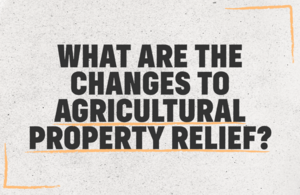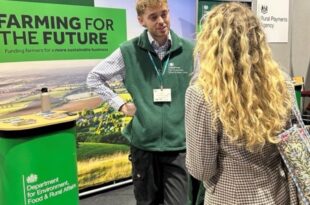
A budget of £5 billion has been allocated for farming and the environment over the next 2 years. This is the largest amount ever dedicated to supporting sustainable food production and nature recovery.
While this is the largest budget we've ever had, we still need to manage it carefully and focus spending on the areas where it can deliver the most benefit for food security and nature.
We provide capital grants for a wider range of items to support sustainable food production and environmental outcomes. So far this year, we have already paid out over £120m across these capital grant offers.
This year the demand for capital grants has been exceptional. As of November, RPA had received more applications for the standalone capital offer than over the whole of the 2023-24 financial year. The value of these applications has also increased significantly – with applications from May to November this year worth 42% more than all applications received last financial year.
This high demand for some grant items has led to spending levels that aren't sustainable for this year. We will be giving more to capital grants this year than ever before. We are forecast to spend 49% more on capital grants this year than we paid out in 2023/24 and 125% more than in 2022/23.
To ensure the funding can be prioritised to help build a sustainable farming sector, we’re simplifying and rationalising grant funding.
Part of the overall capital grant offer has temporarily closed to most new applications. A further update on this will be shared in early 2025. The remainder of the capital items will remain open, and we will monitor take-up.
In this post, we summarise the changes to capital grants.
Prioritising funding and temporary closures
Due to an overwhelming demand for some capital grant items, the main capital grant offer has temporarily closed to new applications - a total of 76 grant items. This is being done to prioritise funds for areas that will have the greatest benefit for food security and nature conservation.
You’ll still be able to apply for the following grants during this period:
- Woodland Tree Health grants, which help protect tree health against devastating plant pests and diseases.
- Capital grant plans and management plans are important to help support the development of new CS Higher Tier agreements.
- Protection and Infrastructure grants and Higher Tier capital grants, help support delivery of high value environmental benefits, such as re-wetting peat.
If your application relates to the capital grant elements that are temporarily withdrawn, it will be on hold for now. You will be contacted in early 2025 with information about what happens next.
If your application is for one of the grants that are still open, it is being processed. You should expect to receive an offer, provided there are no issues with your application.
Payments under existing agreements will continue as usual following the current process. The change only impacts new applications.
For more information on capital grant items, please visit (GOV.UK).
Support for those with existing agreements
In case you missed it, we recently published a post for those with existing Countryside Stewardship Higher Tier (CSHT) and Higher Level Stewardship (HLS) agreements: CSHT mirror agreements and HLS extensions: an overview.
We’re committed to simplifying the application process for all our environmental land management schemes.
To that end, a rolling application window for the CSHT will open in 2025. This change aims to make the process easier and more accessible, helping you benefit from these important environmental schemes. We’re also working to increase the scheme’s capacity to ensure more farmers can apply.
More information on the CSHT will be published in December. By subscribing to the Farming blog, you’ll receive a notification whenever a post is published.
Investing in food production and nature
As mentioned, the £5 billion in funding over 2 years reflects the importance of investing in both food production and nature’s recovery. This funding will support not only the direct grants but also help safeguard against disease threats, provide recovery funds for farmers affected by extreme weather, and sustain projects that improve both farming productivity and biodiversity.
£60 million has already been allocated to support farmers impacted by last winter’s extreme wet weather through the Farming Recovery Fund, and £208 million directed towards protecting against disease outbreaks.
You can expect more information on the upcoming changes as we approach the new year.
A further detailed update on the capital grants will be provided in early 2025, including specifics about new applications, eligibility criteria, and processes. The government will continue working to ensure that funding is directed where it will have the most benefit, helping you achieve both environmental and productivity goals.
The Sustainable Farming Incentive (SFI) is open to farmers. There has been a 13% increase in the number of SFI agreements since July 2024 and in total there are nearly 30,000 live agreements.
Learn how SFI can work for you.







 The
The 
35 comments
Comment by Ellice Hahne posted on
In the past, the RPA have always said they would give us at least 6 weeks notice if they decide to close an existing scheme. Even if not 6 weeks, it would have been helpful to give a bit of notice instead of just closing the grant applications overnight.
What will happen to applications submitted between August and now, which have also not been processed yet?
Comment by The Team posted on
Hi Ellice,
Thanks for getting in touch. We closed the window early due to exceptional demand over the Autumn. RPA had more applications from May to November 2024 than over the whole of the 2023-24 financial year.
If your application is for one of the grants that are still open, it is being processed. You should expect to receive an offer, provided there are no issues with your application. You can view which grants are open here: https://www.gov.uk/government/collections/capital-items-guidance-for-applicants-and-agreement-holders
If you applied for one of the grants that has been temporarily withdrawn, it will remain on hold for now. You will be contacted in early 2025 with information about what happens next.
Payments under existing agreements will continue as usual following the current process. The change only impacts new applications.
Hope that helps,
The Team
Comment by Alex Macdonald posted on
Your blog doesn't make it very clear at all whether applications submitted already (some in early September!) are being kicked into the long grass until Jan 2025.
The blog does say the capital grant 'will temporarily close to most new applications' and then goes on to say 'the main capital grant offer will have closed to new applications' - will have closed when?! What does all of this actually mean?
Comment by The Team posted on
Hi Alex,
Thanks for getting in touch. If your application relates to the capital grant elements that are temporarily withdrawn, it will be on hold for now. This includes applications already submitted. You will be contacted in early 2025 with information about what happens next.
If your application is for one of the grants that are still open, it is being processed. You should expect to receive an offer, provided there are no issues with your application.
Payments under existing agreements will continue as usual following the current process. The change only impacts new applications.
Hope that helps,
The Team
Comment by Neve C posted on
What will happen to those applications already made (over a month ago) and in the system which are yet to receive and agreement offer? It seems unfair to punish those who have made an application in the late summer-autumn, in readiness to accept and complete works, such as fencing, which would typically be undertaken in the winter months.
Comment by The Team posted on
Hi Neve,
Thanks for your feedback. If your application relates to the capital grant elements that are temporarily withdrawn, it will be on hold for now. This includes applications that have already been submitted. You will be contacted in early 2025 with information about what happens next.
If your application is for one of the grants that are still open, it is being processed. You should expect to receive an offer, provided there are no issues with your application.
Payments under existing agreements will continue as usual following the current process. The change only impacts new applications.
Best wishes,
The Team
Comment by J Douglas posted on
Is the Farming Equipment and Technology Fund going to open in 2025?
Comment by The Team posted on
Hello,
Thanks for getting in touch. We are in the process of simplifying and rationalising our grant funding, ensuring that grants are targeted to where they can deliver the most benefit for food security and nature. We will confirm future grant rounds in due course. Subscribe to the blog for the latest updates here: https://defrafarming.blog.gov.uk/subscribe/
Best wishes,
The Team
Comment by C posted on
How can you go against the words on the RPA website that state there will be a 6 week notice before grants are closed? Also, Labour talk about a £5bn investment into farming over next two years - where is that being spent if capital grants are going and BPS has been reduced suddenly? How are we meant to plan our business when we don’t know whether we are coming or going?
Betrayed, struggling and getting desperate here.
Comment by The Team posted on
Hello,
Thank you for your feedback. We have shared this with the grants team. We chose to close the window early due to exceptional demand over the Autumn. RPA has seen a significant increase in the number and value of applications for some capital items over the last few months. We had more applications from May to November 2024 than over the whole of the 2023-24 financial year.
If your application relates to the capital grant elements that are temporarily withdrawn, it will be on hold for now. This includes applications that have already been submitted. You will be contacted in early 2025 with information about what happens next.
If your application is for one of the grants that are still open, it is being processed. You should expect to receive an offer, provided there are no issues with your application.
Payments under existing agreements will continue as usual following the current process. The change only impacts new applications.
Best wishes,
The Team
Comment by Callum Preece posted on
The guidance here refers to the closure of the scheme to 'new applications'. Can you please advise whether applications submitted prior to the closure are still being processed?
Many thanks,
Callum
Comment by The Team posted on
Hi Callum,
Thank you for getting in touch. If your application relates to the capital grant elements that are temporarily withdrawn, it will be on hold for now. This includes applications that have already been submitted. You will be contacted in early 2025 with information about what happens next.
If your application is for one of the grants that are still open, it is being processed. You should expect to receive an offer, provided there are no issues with your application.
Payments under existing agreements will continue as usual following the current process. The change only impacts new applications.
Hope that helps,
The Team
Comment by Dave posted on
Is there a link to or list of just the 76 grant items that have been temporarily closed?
Comment by The Team posted on
Hi Dave,
Thanks for getting in touch. It is only the following grants that remain open during this temporary closure:
Woodland Tree Health grants: https://www.gov.uk/government/publications/woodland-tree-health-grants-2024
Capital grant plans: https://www.gov.uk/government/publications/apply-for-a-capital-grants-plan
Management plans: https://www.gov.uk/government/publications/woodland-management-plan-grants-2024
Protection and Infrastructure grants: https://www.gov.uk/government/publications/protection-and-infrastructure-grants-2024
If you subscribe to the blog, you'll be notified when there is any update on this: https://defrafarming.blog.gov.uk/subscribe/
Hope that helps,
The Team
Comment by Polly Dumbreck posted on
Hi. Is the Woodland Improvement grant still available for new applications?
Comment by The Team posted on
Hi Polly,
Applications for Countryside Stewardship Higher Tier, including the woodland improvement grant (WD2), are currently closed: https://www.gov.uk/government/publications/woodland-grants-and-incentives-overview-table/woodland-grants-and-incentives-overview-table
Best wishes,
The Team
Comment by Charlie Barrett posted on
I had a RP28 capital grant endorsed and signed for earlier this year. I am currently in the middle of building this. Has this funding been withdrawn ?
Comment by The Team posted on
Hi Charlie,
Thanks for getting in touch. If your application was successful, the RPA would have sent you an agreement offer letter which needed to be signed and returned by post within 20 working days. In order to start any work, and be paid for it, you would need to have made sure you accepted the offer and received a capital grant agreement number first.
If you are unsure about whether the grant was approved, please contact the RPA with your SBI number:
Email: ruralpayments@defra.gov.uk
Telephone: 03000 200 301
Further guidance on 2024 capital grants can be found here: https://www.gov.uk/government/publications/capital-grants-2024/3451c5f9-431c-4530-bb47-40ac2a0abe8f#about-capital-grants
Hope that helps,
The Team
Comment by Jane posted on
Will new applications to the Making Space for Water grant be accepted
Comment by The Team posted on
Hi Jane,
Thanks for getting in touch. The action CSW12: make room for the river to move, will be available to apply for when the new CSHT scheme opens for applications this summer. You can read the action guidance here: https://www.gov.uk/government/publications/countryside-stewardship-higher-tier-get-ready-to-apply/countryside-stewardship-higher-tier-actions#csw12-make-room-for-the-river-to-move
We recently hosted a webinar on the pre-application process for CSHT you might like to watch for further information: https://defrafarming.blog.gov.uk/2025/01/21/watch-countryside-stewardship-higher-tier-webinar/
Hope that helps,
The Team
Comment by Neil Pickard posted on
Our application to the Improving Farm Productivity Grant for solar panels got through the first round and we have been invited to complete the Round 2 Forms before 31/7/25. Are we able to progress this application now or has this grant been put on hold please?
Comment by The Team posted on
Hi Neil,
Thanks for getting in touch. The Improving Farm Productivity (IFP) Grant is unaffected by the temporary closure of new capital grant applications, so you should be able to continue progressing this IFP grant application.
Best wishes,
The Team
Comment by Claire posted on
It is not clear what is withdrawn on Grant Finder. Please clearly publish what is open to applied for and what is closed. We need a list of the codes (i.e. FG12 and whether that is open and to whom it is open to).
If I am a new applicant, can I apply for a standalone capital grant? (i.e. FG1)?
If I have an existing HT agreement, can I apply for BN11 and LV7?
Comment by The Team posted on
Hi Claire,
Thanks for getting in touch. If you are a new capital grants applicant, the only grants that are currently available as stand alone items are listed below:
Woodland Tree Health grants: https://www.gov.uk/government/publications/woodland-tree-health-grants-2024
Capital grant plans: https://www.gov.uk/government/publications/apply-for-a-capital-grants-plan
Management plans: https://www.gov.uk/government/publications/woodland-management-plan-grants-2024
Protection and Infrastructure grants: https://www.gov.uk/government/publications/protection-and-infrastructure-grants-2024
If you’re an existing Countryside Stewardship (CS) Higher Tier agreement holder you can apply for Higher Tier Capital Grants including FG12, BN11 and LV7: https://www.gov.uk/government/publications/higher-tier-capital-grants-2024
https://www.gov.uk/countryside-stewardship-grants/wooden-field-gate-fg12
https://www.gov.uk/countryside-stewardship-grants/planting-new-hedges-bn11
https://www.gov.uk/countryside-stewardship-grants/livestock-troughs-lv7
Hope that helps,
The Team
Comment by Claire posted on
Can you apply for a new higher tier capital grant (i.e. FG1) as a standalone application or are the HT Capital Items only open to existing agreement holders? For advisors, it's not completely clear which items new applicants can apply for or whether you have to be an existing agreement holder in order to apply for items.
Comment by The Team posted on
Hi Claire,
Thanks for getting in touch. Your customer can only apply for Higher Tier Capital Grants if they are an existing Countryside Stewardship Higher Tier (CSHT) agreement holder: https://www.gov.uk/government/publications/higher-tier-capital-grants-2024.
The main capital grant offer has temporarily closed to new applications. If you subscribe to the blog, you'll be notified when there is any update on this: https://defrafarming.blog.gov.uk/subscribe/
The following grants remain open during this temporary closure:
Woodland Tree Health grants: https://www.gov.uk/government/publications/woodland-tree-health-grants-2024
Capital grant plans: https://www.gov.uk/government/publications/apply-for-a-capital-grants-plan
Management plans: https://www.gov.uk/government/publications/woodland-management-plan-grants-2024
Protection and Infrastructure grants: https://www.gov.uk/government/publications/protection-and-infrastructure-grants-2024
Hope that helps,
The Team
Comment by Ed Franklin posted on
Hi, are the grants FG1 and FG2 still available for new applicants or is this something thats currently under review?
Comment by The Team posted on
Hi Ed,
Thanks for getting in touch. Due to an overwhelming demand for some capital grant items, the main capital grant offer has temporarily closed to new applications - a total of 76 grant items including FG1 and FG2. If you subscribe to the blog, you'll be notified when there is any update on this: https://defrafarming.blog.gov.uk/subscribe/
The following grants remain open during this temporary closure:
Woodland Tree Health grants: https://www.gov.uk/government/publications/woodland-tree-health-grants-2024
Capital grant plans: https://www.gov.uk/government/publications/apply-for-a-capital-grants-plan
Management plans: https://www.gov.uk/government/publications/woodland-management-plan-grants-2024
Protection and Infrastructure grants: https://www.gov.uk/government/publications/protection-and-infrastructure-grants-2024
If you’re an existing Countryside Stewardship (CS) Higher Tier agreement holder you can also apply for Higher Tier Capital Grants: https://www.gov.uk/government/publications/higher-tier-capital-grants-2024
Hope that helps,
The Team
Comment by Max Wade posted on
Hi,
When logging in and trying to create a new application for a protection and infrastructure grant there is no where to select to create a new application, the only option is to apply for a woodland management plan, whereas in the past all the options were there.
I appreciate you have closed normal capital applications, but as you state in your blog you are still open to applications for protection and infrastructure.
So how do I go about making an application? And is there any update on when you'll be taking applications for other capital works? Hedge laying for one.
Thanks
Comment by The Team posted on
Hi Max,
Thanks for getting in touch. You will need to apply by e-mail or post for this grant, the guidance and application form can be found here: https://www.gov.uk/government/publications/protection-and-infrastructure-grants-2025/how-to-complete-your-protection-and-infrastructure-grant-application-by-email-or-post
Before you apply, check the applicant’s guide to make sure you’re eligible: https://www.gov.uk/government/publications/protection-and-infrastructure-grants-2025/applicants-guide-protection-and-infrastructure-grants-2025
Hope that helps,
The Team
Comment by Darren Pluess posted on
Dear RPA
I am in a catchment sensitive area which is also a high phosphate area.I have been working closely with the River Trust and entered SFI agreements in the best interests of the River Camel.My main holding(cattle sheds) are very near streams so I have taken the huge step of moving the cattle sheds to a site further from the Camel..It took several months to get the Catchment Sensitive officer on site because she was very busy.I also paid an agent Edward Buckland to put in an application for a silage pit cover.It also takes time to be in a financial position to outlay for the shed before claiming the money back.I finally got there for the grant to be suspended..Please advise.
Comment by The Team posted on
Hi Darren,
If you did not submit an application before 26 November 2024, you will be able to submit an application when the scheme re-opens in the summer. Depending on the items you select, caps will apply to the categories of the Capital Grants scheme. For water quality items, the cap will be £25,000 for each application. You will be able to submit one application per calendar year from summer 2025. We will publish which items are in each category before the scheme reopens.
Best wishes,
The Team
Comment by Darren Pluess Darren Pluess posted on
Thankyou for your reply.
It was submitted before November, just think some cases should be judged on individual merit... Im actually changing my farming practices to help the river.
Thanks
Darren Pluess
Comment by James posted on
Still no update on capital grants!
Are you waiting until after the spring budget?
Thanks if you can even reply
Comment by Sarah Stewart posted on
Hi James,
Just published this: https://defrafarming.blog.gov.uk/2025/02/25/an-update-on-capital-grants-2/
Best wishes,
Sarah